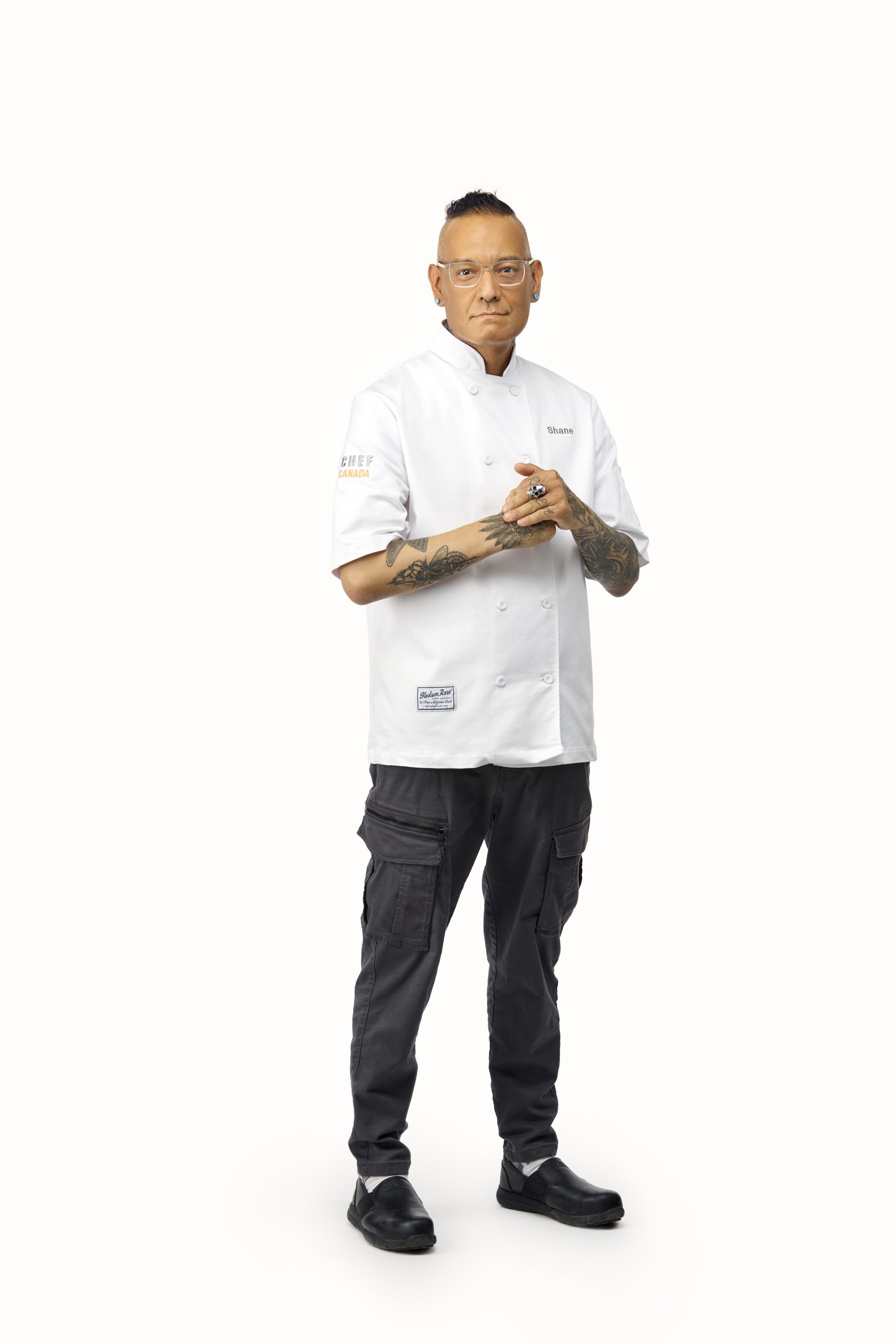Shane Chartrand’s home address may be in Sherwood Park, but he’s become a global ambassador for Indigenous cooking.
He presented on Indigenous food and healing at the COP27 Conference in Egypt — the United Nations-sponsored event on climate change. He just finished a stint cooking in Chicago. Soon, he’s off to the famous Inn at Bay Fortune in Prince Edward Island, to join renowned chefs Michael Smith and Michael Hunter. Then, he’s off to Tuktoyaktuk so he can bring his cooking know-how to that small Arctic community.
And, he’s going to be one of the contestants on Season 11 of The Food Network’s Top Chef Canada, which debuts Oct. 14.
Actually, it’s not “going to be.” The series has already been shot, we’re just waiting for the air date. But, if you’re a PR person from The Food Network and you’re reading this piece, don’t worry. Chartrand, over and over, said he couldn’t talk about any of the episodes. He provided nothing close to a spoiler. No NDAs were broken in the making of this article.
All he’d say about the show was that, going into the competition, “you have got to be ready to be broken.”
He says that the reason he was one of the chefs selected for season 11 — and the only one from the Edmonton area — was his unique story. As one of the country’s leading voices for Indigenous cuisine, and co-author of tawâw: Progressive Indigenous Cuisine, he’s earned a reputation for being thoroughly modern yet respectful of tradition.
“It’s heavily story-driven,” he says of the selection process. “Somebody told them that I was an ‘icon of sorts.’ It’s truly about storytelling. You have to have a story to get past the thousands of people who want to be on that show.”
Chartrand’s co-writer, Jennifer Cockrall-King, and renowned Canadian food writer Amy Rosen urged him to put himself forward for the show.
But that’s not the only place where you’ll see Chartrand on television this autumn. He also makes an appearance in Michif Country, an APTN docuseries about the Métis community of St. Laurent, Manitoba.
